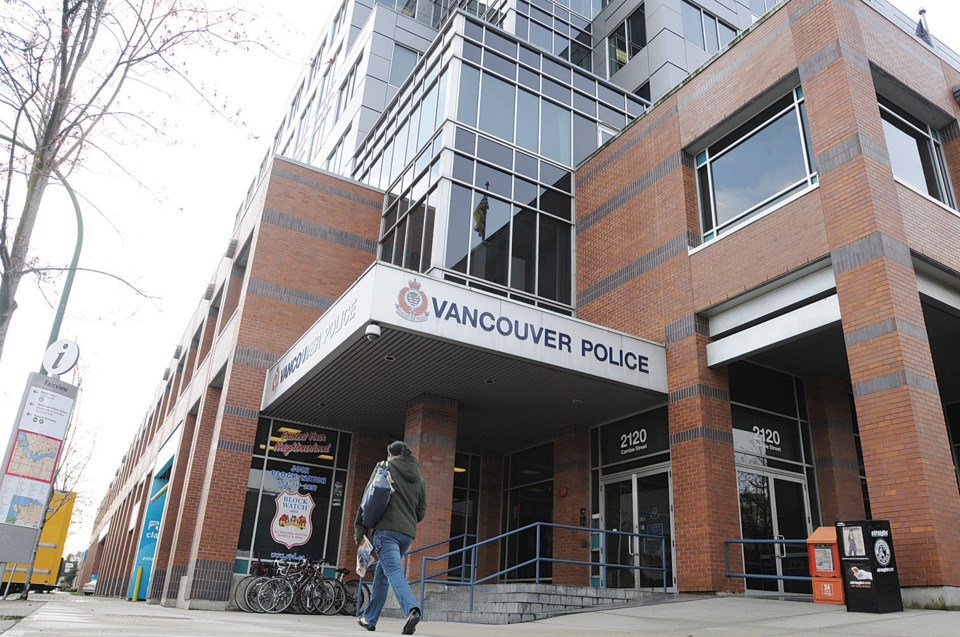The department’s push for a policy comes two months after Canada’s privacy commissioner blasted New York-based company Clearview AI for violating the country’s privacy laws.
Those violations involved Clearview collecting images of Canadians, including children, and marketing its services to law enforcement in Canada.
Vancouver police acknowledged last year that one of its investigators from its Internet child exploitation unit downloaded a trial version of the service after attending a conference on child exploitation.
The officer uploaded one photograph into Clearview’s database in an effort to identify a person to support an investigation concerning the production and distribution of child pornography.
In a report that went before the Vancouver Police Board April 15, the department said the use of the software did not assist in the investigation
“Once it was learned that the member had attempted to use Clearview, the VPD provided direction to cease using the service,” said the report, which was written in response to a complaint from Bryan Short of OpenMedia.
'Broad-based harms'
Short spoke to the police board in January and argued facial recognition technology poses a threat to society, “especially to those already marginalized or experiencing the harms of over-policing.”
He requested a formal moratorium on its use until a written policy was created “that can offer privacy protections and help to mitigate the significant broad-based harms that come with its use.”
While the police report makes it clear the VPD will not use Clearview AI again, the department said it “may test other forms of facial recognition software to evaluate service efficacy, as well as to assess privacy, identification and security risks and safeguards.”
But Police Chief Adam Palmer assured the police board April 15 that his officers will not use facial recognition technology for investigations until a policy is in place.
“We acknowledge that we did have the one issue with Clearview, which quite frankly was a misunderstanding,” Palmer said. “But there’s no misunderstanding anymore. So we don’t use it, we have no plans in using it until solid policy is in place.”
Board member Frank Chong said he looked forward to discussion of a policy and mentioned the city’s previous hockey riots in 1994 and 2011 as events where facial recognition technology could have been deployed.
“I do think there is some opportunity here, but that has to be discussed first in the constraints of a policy,” Chong said
Clearview AI’s technology allowed law enforcement and commercial organizations to match photographs of unknown people against the company’s databank of more than three billion images.
Those images included adult Canadians and children.
'Mass surveillance'
Canada’s privacy commissioner Daniel Therrien conducted the investigation of Clearview in conjunction with provincial commissioners from Quebec, Alberta and B.C.
Therrien said in a Feb. 3 news release that what Clearview did amounted to "mass surveillance" and that it is illegal.
“It is completely unacceptable for millions of people who will never be implicated in any crime to find themselves continually in a police lineup,” he said.
Michael McEvoy, B.C.’s information and privacy commissioner, said the investigation’s results pointed to the need to strengthen privacy laws to protect the public.
“It is unacceptable and deeply troubling that a company would create a giant database or our biometric data and sell it for profit without recognizing its invasive nature,” McEvoy said in the same news release, which included several arguments from Clearview, including:
• Canadian privacy laws do not apply to its activities because the company does not have a “real and substantial connection” to Canada.
• Consent was not required because the information was publicly available.
• Clearview cannot be held responsible for offering services to law enforcement or any other entity that subsequently makes an error in its assessment of the person being investigated.
According to the B.C. government, Clearview stopped offering its services to Canadian clients after the commissioners’ investigation was launched.
It stopped offering trial accounts to Canadian organizations and discontinued services to its only remaining subscriber, the RCMP, in July 2020.
@Howellings



